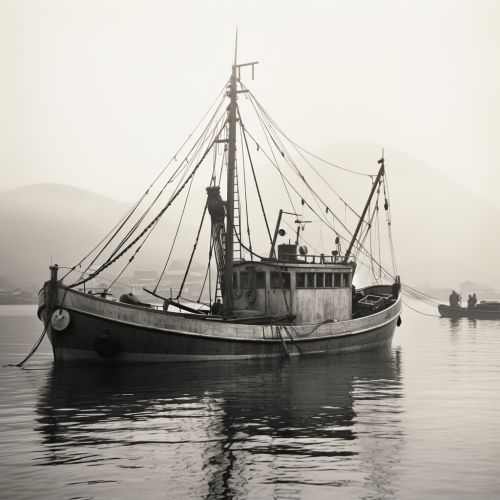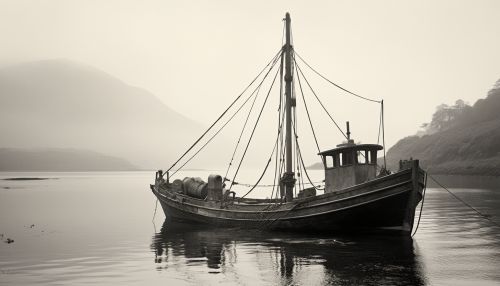Marine Resource Management
Overview
Marine Resource Management (MRM) is a discipline that focuses on the sustainable utilization of marine resources. It involves the application of scientific, economic, legal, and social principles to manage and conserve marine ecosystems and their resources. MRM is a crucial aspect of oceanography, marine biology, environmental science, and marine policy.
History
The concept of Marine Resource Management has its roots in the early 20th century, when nations began to recognize the need for conservation of marine resources. The advent of industrial fishing and the subsequent depletion of fish stocks led to the realization that marine resources are not inexhaustible. This gave rise to the need for a systematic approach towards their management.


Principles
Marine Resource Management operates on several principles. These include the precautionary principle, ecosystem-based management, adaptive management, and the principle of common but differentiated responsibilities.
Precautionary Principle
The precautionary principle is a key tenet of MRM. It states that in the face of uncertainty, it is better to err on the side of caution and take preventive measures to avoid harm to the environment and its resources.
Ecosystem-Based Management
Ecosystem-based management (EBM) is a holistic approach that considers the entire ecosystem, including humans. EBM aims to maintain an ecosystem in a healthy, productive, and resilient condition so it can provide the services humans need.
Adaptive Management
Adaptive management is a systematic process for continually improving management policies and practices by learning from the outcomes of operational programs. It involves the application of trial-and-error methods to resource management and emphasizes learning and adaptation through partnerships of managers, scientists, and other stakeholders.
Principle of Common but Differentiated Responsibilities
The principle of common but differentiated responsibilities recognizes that while all nations have a common responsibility to protect the marine environment, developed countries have a greater role due to their historical contribution to marine pollution and their greater technical and financial capabilities.
Techniques
Marine Resource Management employs various techniques such as marine spatial planning, fisheries management, marine protected areas, and integrated coastal zone management.
Marine Spatial Planning
Marine spatial planning (MSP) is a public process of analyzing and allocating the spatial and temporal distribution of human activities in marine areas to achieve ecological, economic, and social objectives.
Fisheries Management
Fisheries management involves the application of management rules to fishing activities, with the aim of achieving sustainable use of fish stocks and minimizing the impact of fishing on the marine environment.
Marine Protected Areas
Marine protected areas (MPAs) are regions of the ocean where human activities are more strictly regulated than the surrounding waters. MPAs are established to protect marine ecosystems and biodiversity, and to ensure the sustainable use of marine resources.
Integrated Coastal Zone Management
Integrated coastal zone management (ICZM) is a process for the management of the coast using an integrated approach, regarding all aspects of the coastal zone, including geographical and political boundaries.
Challenges
Marine Resource Management faces several challenges including overfishing, climate change, marine pollution, habitat destruction, and invasive species. These challenges require a multi-disciplinary approach and international cooperation for effective management.
Future Directions
The future of Marine Resource Management lies in the development of innovative strategies and technologies to address the challenges faced by marine ecosystems. This includes the use of remote sensing technologies, development of sustainable aquaculture practices, and the implementation of effective marine policies at the global level.
